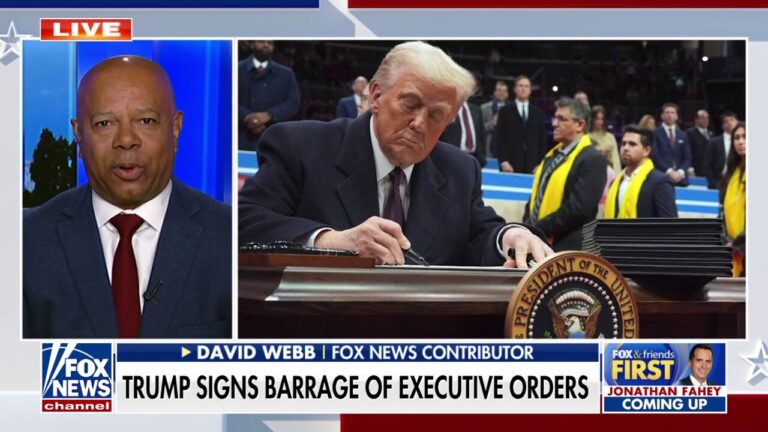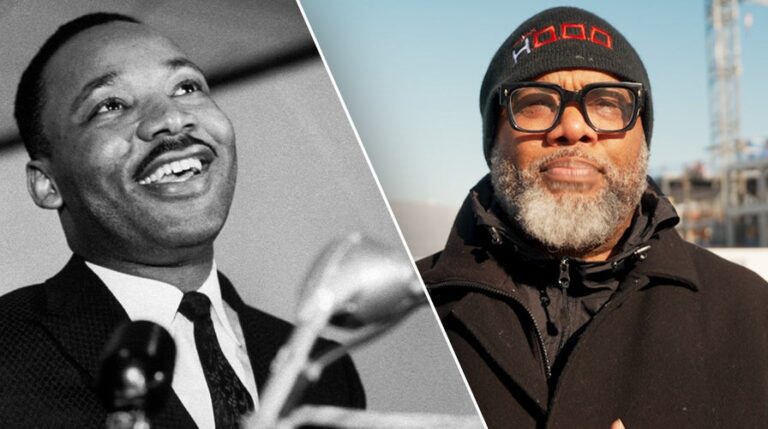
A new AP-NORC poll finds that American voters are concerned about the war in the Middle East, though there is a partisan split over who is to blame for escalating the conflict.
American voters worry that the ongoing war between Israel and Hamas will escalate into a larger regional conflict in the Middle East, a new poll finds.
While Democrats and Republicans both agree that the ongoing war is a problem and both are wary of U.S. involvement in the Middle East, there’s a stark partisan divide over who is to blame for escalating the conflict, according to the AP-NORC Center for Public Affairs Research survey. The poll was conducted before Israel launched airstrikes on military bases in Iran on Friday.
About 6 in 10 voters overall say the Palestinian terrorist group Hamas, the Iranian government and the Lebanese terror group Hezbollah share “a lot” of responsibility for escalating the war. Roughly 4 in 10 assign blame to the Israeli government and only about 2 in 10 say the U.S. government has “a lot” of responsibility, the Associated Press reported.
But breaking the numbers down by party affiliation reveals a big gap between the left and right. About 6 in 10 Democrats say the Israeli government bears “a lot” of responsibility for escalating the conflict in Gaza – a similar number of Democrats say Hamas bears “a lot” of responsibility – while only about 1 in 4 Republicans assign “a lot” of blame to Israel.
ISRAEL’S STRIKE ON IRAN TOOK OUT MISSILE DEFENSE SYSTEMS, ISLAMIC REPUBLIC ‘IS ESSENTIALLY NAKED’
The conflict in the Middle East has become a major campaign issue as former President Donald Trump and Vice President Kamala Harris attempt to win over Muslim and Jewish voters in battleground states like Michigan and Pennsylvania. About half of voters are “extremely” or “very” worried about a wider war in the Middle East. Though fewer voters – 4 in 10 – are concerned that the U.S. will be drawn into the conflict.
The poll finds that a majority of voters (55%) support economic sanctions on Iran, which U.S. officials recognize as the largest state sponsor of terrorism in the Middle East. However, Americans are evenly divided on whether the U.S. should supply Israel’s military with weapons and voters are more likely to oppose sending U.S. aid to Israel’s military, according to the AP.
ISRAEL BEGINS RETALIATORY STRIKES AGAINST IRAN FOLLOWING MISSILE BARRAGE TARGETING ISRAELIS
There is bipartisan opposition to deploying U.S. troops in the Middle East to assist Israel. Nearly half of voters oppose putting American boots on the ground in Gaza, while just 2 in 10 voters favor sending soldiers to fight with Israel. About another 2 in 10 had a neutral view, the AP reported.
The Biden-Harris administration has continued to apply pressure on Israel and Hamas for a cease-fire for more than a year now, with little success.
About half of American voters think the U.S. is “doing as much as it can” to broker a cease-fire deal between Israel, Hamas and Hezbollah. Three in 10 say the U.S. could be doing more, while roughly 2 in 10 voters say the U.S. should be doing less.
Again, there is a partisan split on how the U.S. should approach the conflict. Republicans are more likely than Democrats to say the U.S. should be less involved in cease-fire negotiations. About 3 in 10 GOP voters say the U.S. should do less, but just 1 in 10 Democrats say the same. About 6 in 10 Democrats say the U.S. is doing what it can, compared to about 4 in 10 Republicans.
Democrats, Republicans and independents are about equally likely to say the U.S. could be doing more.
The AP-NORC poll of 1,072 adults was conducted Oct. 11-14, 2024 and has a margin of error of plus or minus 4.2 percentage points.
The Associated Press contributed to this report.



